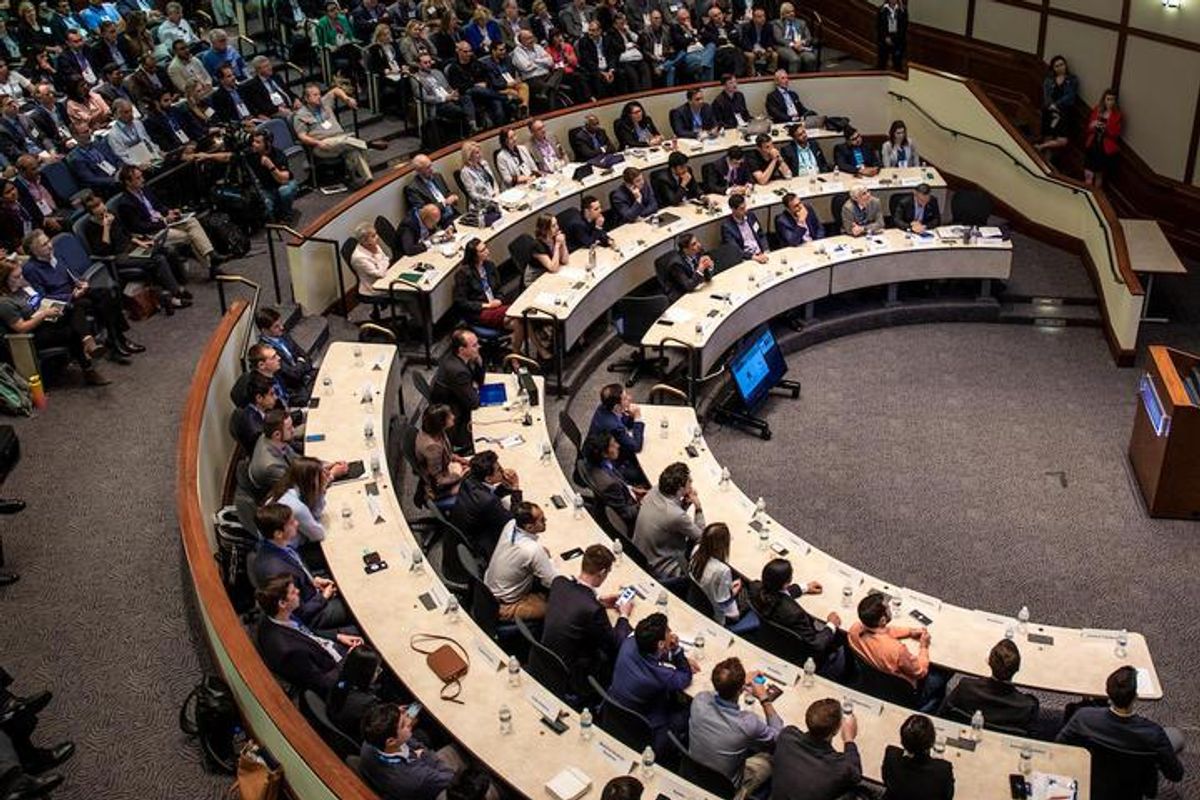Houston organizations team up to bring inaugural climate startup week
mark your calendars
Three organizations are teaming up to put on a week of programming and events focused on energy and climate startups.
Greentown Labs, Halliburton Labs, and the Rice Alliance for Technology and Entrepreneurship have announced Houston Energy and Climate Startup Week 2024 taking place September 9 to 13.
“These organizations will execute events that will serve as a launching pad for an Energy and Climate Startup Week in Houston, showcasing the city as a national hub for the energy future,” Brad Burke, executive director of the Rice Alliance, says in the release. “We welcome the community to bring other energy and climate events to the week, which we’ll cross-promote as the dates approach.”
The week will assemble investors, industry leaders, and startups from across the energy industry and from around the world to showcase Houston's growing sustainable, low-carbon energy future.
The initiative is in collaboration with the Houston Energy Transition Initiative, or HETI, an initiative of the Greater Houston Partnership, as well as Activate, Digital Wildcatters, Renewable Energy Alliance Houston, and TEX-E.
“As the energy capital and one of the most diverse cities in the world, Houston stands as a center point for these solutions. The region is welcoming, diverse and has the know-how to play a critical role in building an energy abundant, low-carbon future," Jane Stricker, executive director of HETI and senior vice president at GHP, says in the release. "We welcome all who want to be part of the solution to join for this exciting, inaugural week of events.”
Attendees can expect tech and startup showcases, panels, pitches, discussions, and networking events to be hosted across Houston and at the Ion, Rice's innovation hub in Midtown. More details on the events will be added to the Ion's website as they become available.
“We look forward to the opportunity to highlight talented founders and connect them with investors, industry practitioners and university resources to help accelerate energy innovation,” Dale Winger, managing director of Halliburton Labs, says in the release. “The collaboration to launch Energy and Climate Startup Week reflects how Houston works together to scale solutions."
- Rice University launches $12.5M climate tech accelerator ›
- 5 tips for people looking to expand their career into climate tech, according to this Houston expert ›
- Houston climate tech startup closes $3M seed led by Shell ›
- New climate tech accelerator announced, Ion's new exec, and more trending Houston innovation news ›

 Helix Earth Technologies walked away with the top prize of the TEX-E category. Photo via greentownlabs.com
Helix Earth Technologies walked away with the top prize of the TEX-E category. Photo via greentownlabs.com






